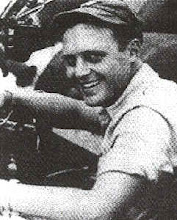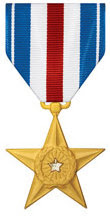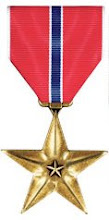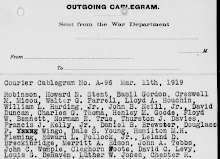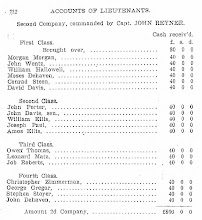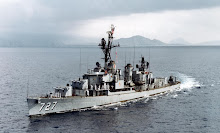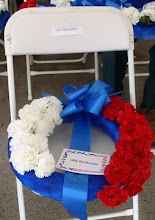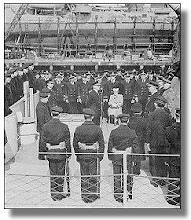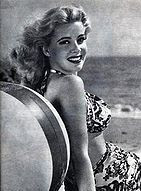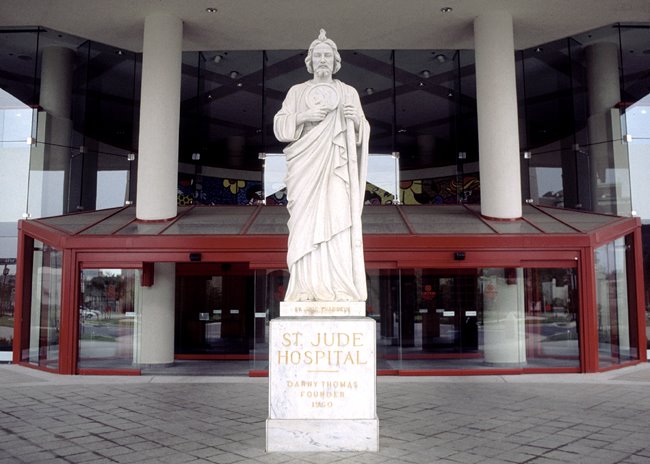
BY ONE OF MEDIA'S NAVAL HEROES.
[The following letter, written in 1862 by Commander De Haven Manley, who died some years since, was found among the papers of the late Hon. John M. Broomall, by his widow and given to the family of the writer :--]
Media, Pa., March 24th, P.M., 1862.
To J. M. Broomall, Esq. -- Sir: -- As you requested, for the benefit of my fellow citizens and for the use of those of my friends who would like to read an account of the great battle between the US. Ships Congress and the Rebel Steamer Merrimack, which occurred on Saturday, the 8th inst., I furnish you with the following short account.
This description will be more satisfactory than those incorrect ones given in the daily papers, and as I was on board of the Congress from beginning to end of the engagement I can speak from experience and observation.
The day above mentioned opened with light and pleasant breezes from the W. and with a clear sun whose rays were unobstructed by a single cloud.
At 9 in the morning, I, being officer of the deck. loosed sails to dry, by order of L't Pendergrast our executive officer. The morning was fine and the usual daily routine of a Saturday was gone through with, viz:--a field day as we call it, or a general scrubbing of all the decks, preparatory to Sunday inspection by the captain.
At noon I was relieved of the deck and went below. In about a half hour from that time, while officers were smoking, after taking a lunch, word was sent by officer of the deck to Lieu't Commanding Jos. B Smith, that the Merrimack was coming down from Norfolk. We went on deck and observed her with our glasses, accompanied by three small gunboats all flying the Rebel flag. The Merrimack had also an admiral's flag forward. Upon looking up the James River we observed also the Jamestown and Yorktown coming toward us on that side. At first we thought the Merrimack was only making a trial trip, but she soon convinced us by the way she headed that she inteded to pay us a visit. Accordingly we made all preparations to receive her--sails were furled, the small arms hastily loaded, a boat sent ashore to notify Gen'l Mansfield of her coming, etc. The Cumberland about 800 yards from us was also busily engaged. The Rebels steadily advanced, we had beaten to quarters, and the men were all ready for the work before us. Our ship was heading down the river, or S.E., and the tide being a young flood was not strong enough to spring our ship by the spring on the cable. The Merrimack had now approached to within 500 yards of our starboard bow and none of our guns would as yet train upon her, but the Cumberland having two pivot guns opened fire upon her, the shot falling off from her iron bound sides without effect. She now opened her broadsides upon the Congress, firing at our main deck batteries and berth deck. I was standing near the main hatch about the centre of the ship and the first broadside killed nearly all the crews of the two guns (14 men a gun's crew) dismountin No. 7, by shooting the carriage from under. The captains of the guns reported their case to me, and I told them to man any of the other guns that they saw were short-handed. We tried now to spring our ship by setting the spanker, which succeeded. The Merrimack gave us a broadside, passing about 300 yards from us, steaming directly for the Cumberland which ship she ran into with her iron prow, striking her on the starboard bow. We rapidly worked our starboard guns, but now owing to her change of position we worked the port battery plumping her every time, but without effect. The Cumberland being run into the second time rapidly went under and was soon hors de combat. At this time the Minnesota coming to our assistance, grounded, and the Roanoake and St. Lawrence, not being able to get up returned to Hampton Roads. The Congress then had to stand the whole brunt of the battle -- The "Merrimack" seeing that we could get no assistance from the ships below, returned to us the second time, and to prevent her from striking us, like she did the "Cumberland" and to be able to keep our guns above water to fight as long as possible, we slipped our cable and ran the ship ashore. The Rebel came on and took up a position about 150 yards astern of us, firing her shot and shell into us with great rapidity and destruction. We had but two stern guns to bear on her, the crew of which were mowed down as fast as replaced. Soon they were disabled, one having the muzzle broken off and the other having the carriage knocked from under it. The ship was also on fire for the seventh time, from the "Merrimack's" hot shot, and burning rapidly from under us. The smaller rebel craft now taking courage, came and assisted the "Merrimack" in her work of destruction. Here then we were alone and unaided, our ship burning under our feet, our crew nearly all killed off, a slughter pen fro the enemy, no guns which we could use against her to retaliate, the piteous groans of the wounded sounding in our ears, and a helpless target for three steamers. Under these circumstances the order was given about 4 p.m., to lower the flag, which was reluctantly obeyed. They continuing to fire into us after our flag was down, a white flag was run up when the firing ceased. The "Merrimack" now turned her attention to the "Minnesota" and a small Rebel steamer (the Beaufort) came along side of us. Her officers boarded us and stated that we officers should go on board as prisoners of war, and that our men might make their escape. We demanded time to take care of our wounded and dying before they blew our ship up, and for this purpose our surgeon Dr. Shippen had a conference with the Captain of the Rebel steamer which was not very satisfactory. However, we went to work collecting the wounded and sending them on shore in the boatds. Horrible sights met our view on every side. The decks were slippery with gore, heads, legs, bodies, and bits of human flesh were lying around promiscously.--The wounded were moaning pitiously, and everythign was in ruins. While we were thus employed landing the wounded, our troops on the beach with their artillery opened fire upon the Rebel tug along side of us, so that she was obliged to haul off and leave us. We then proceeded with our work, and after getting everybody ashore, we officers, last of all, left the ship. We got ashore at twilight and spent the night at Camp Butler, thus no officer of the "Congress" was taken prisoner as first reported. Shortly after leaving our ship her magazine blew up and thus scattered her timbers to the four winds.
The following numbers are from the official report of Lieut. Pendergrast:
| Total number of officers and men on board the "Congress"................... | 434 |
| Total number of officers and men accounted for................. | 298 |
| Total number of officers and men killed, wounded and missing.............. | 136 |
| Total number of officers and men wounded and taken on shore............. | 26 |
| Total number of officers and men killed and missing.................. | 110 |
| Total number of officers and men wounded, since dead .................... | 10 |
| Total number killed and died ashore ............................ | 120 |
| Officers killed -- | Lieut. Comd'g Jos. B. Smith, |
| | Acting Master, Thos. Moore |
| | Pilot Wm. Rhodes |
| | Mast'rs Mate, Peter Hargous. |
Several incidents occurred, a few of which I will mention. A man named Leroy, Captain of No. 13 gun, was almost cut in two by a shell. At this time the "Merrimack" by an arrangement of hers, sank herself so as to have as much momentum as possible to run into the "Cumberland." Our crew thought her disabled and sinking, and sent up their hearty cheers. Leroy hearing this asked, "What is the matter?" and being told the "Merrimack" was sinking said, "Three cheers for the Union!" and he had hardly done speaking when the breath left his body. Thus he nobly died in his country's cause.
Mr. Lenhart, Chaplain of the Cumberland, shut himself up in his room and sank with the ship.
A young schoolmate of mine from N.C., named Foreman, came on board of the Congress, seized the flag that had been hauled down, and while passing from our ship to his own alongside of us was struck by a bullet and it is said fell dead with the flag in his hand.
During the night the Monitor arrived, and early on Sunday morning the Merrimack renewed her attack upon the Minnesota, which ship was saved by the "Monitor giving battle to the rebel. These two iron vessels fought all Sunday morning, and at 12:30 p.m. the Merrimack being disabled, returned to Norfolk since which time she has not shown herself. In hast, yours, &c.,
| | H. De Haven Manley, |
Media, Pa.
